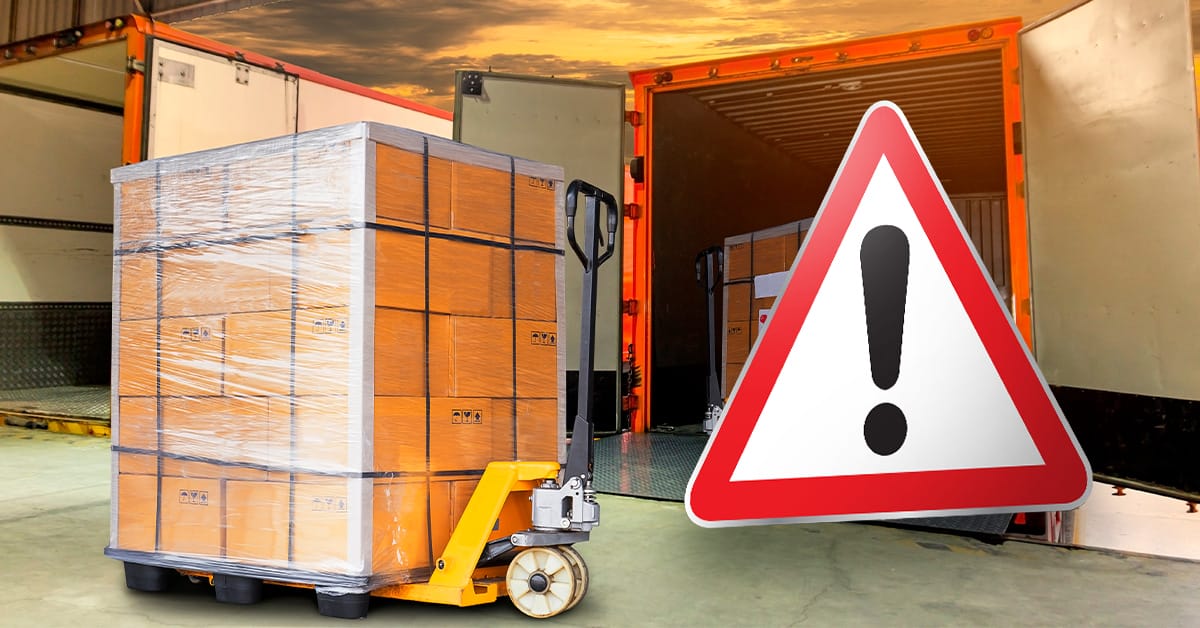Mastering Shipping Compliance: A Comprehensive Guide For Businesses
In today’s globalized economy, shipping compliance plays a pivotal role in ensuring smooth international trade operations. Whether you're a small business or a multinational corporation, understanding and adhering to shipping compliance regulations is essential for avoiding legal pitfalls and optimizing supply chain efficiency. Failure to comply with these regulations can result in hefty fines, shipment delays, and even the loss of business licenses. As such, it is critical for businesses to prioritize shipping compliance as part of their operational strategy.
Shipping compliance involves adhering to the laws, regulations, and guidelines set by various governing bodies, including customs authorities, trade organizations, and international regulatory agencies. These regulations cover a wide range of aspects, from documentation requirements and product classification to export controls and customs duties. Staying informed and updated on these regulations is crucial for businesses looking to thrive in the competitive global market.
This article aims to provide an in-depth exploration of shipping compliance, covering everything from its importance to practical strategies for implementation. By the end of this guide, you will have a comprehensive understanding of how to navigate the complexities of shipping compliance and ensure your business remains on the right side of the law.
Read also:Gayle Cook Net Worth
Table of Contents
- The Importance of Shipping Compliance
- Key Shipping Compliance Regulations
- Shipping Documentation Requirements
- Product Classification and HS Codes
- Understanding Export Controls
- Customs Clearance Procedures
- Logistics and Supply Chain Considerations
- Penalties for Non-Compliance
- Leveraging Technology for Compliance
- The Future of Shipping Compliance
The Importance of Shipping Compliance
Shipping compliance is not merely a regulatory obligation; it is a strategic imperative for businesses engaged in international trade. By adhering to shipping compliance standards, companies can avoid costly delays, minimize risks, and enhance their reputation in the global market. Moreover, compliance ensures that businesses remain competitive by streamlining operations and reducing unnecessary expenses.
One of the primary reasons shipping compliance is so important is the potential financial and legal consequences of non-compliance. For instance, failure to comply with customs regulations can lead to fines, seizure of goods, and even criminal charges in severe cases. Furthermore, non-compliance can damage a company's reputation, making it difficult to secure future contracts and partnerships.
Why Compliance Matters for Small Businesses
- Small businesses often lack the resources to navigate complex regulatory frameworks, making them more vulnerable to compliance issues.
- Compliance ensures that small businesses can compete on a level playing field with larger corporations.
- By prioritizing compliance, small businesses can build trust with customers and partners, fostering long-term growth.
Key Shipping Compliance Regulations
Shipping compliance involves adherence to a variety of regulations, both domestic and international. Some of the key regulations that businesses must consider include the International Chamber of Commerce (ICC) guidelines, the World Trade Organization (WTO) rules, and specific national regulations such as those enforced by the U.S. Customs and Border Protection (CBP).
Additionally, businesses must stay informed about updates to these regulations, as they are subject to change due to geopolitical developments, trade agreements, and economic conditions. Staying up-to-date with these changes is crucial for maintaining compliance and avoiding potential legal issues.
Examples of Key Regulations
- Incoterms: International Commercial Terms that define the responsibilities of buyers and sellers in international trade.
- Harmonized System (HS) Codes: A standardized system used to classify traded products.
- Export Administration Regulations (EAR): U.S. regulations governing the export of dual-use items.
Shipping Documentation Requirements
Proper documentation is a cornerstone of shipping compliance. The documentation required for international shipments varies depending on the destination country, the type of goods being shipped, and the mode of transportation. However, some common documents include commercial invoices, packing lists, certificates of origin, and bills of lading.
Ensuring that all documentation is accurate and complete is essential for avoiding delays and penalties. Businesses should invest in training their staff to handle documentation processes effectively and consider using software solutions to streamline these tasks.
Read also:Christopher Henkel Net Worth
Tips for Managing Shipping Documentation
- Use templates for commonly required documents to ensure consistency.
- Regularly review documentation processes to identify areas for improvement.
- Engage with customs brokers or freight forwarders to ensure compliance with documentation requirements.
Product Classification and HS Codes
Product classification is a critical aspect of shipping compliance, as it determines the applicable tariffs, duties, and regulations for a given shipment. The Harmonized System (HS) Code is the most widely used system for classifying traded goods, and businesses must ensure that their products are correctly classified to avoid compliance issues.
Misclassification of products can result in significant financial penalties, shipment delays, and reputational damage. Therefore, businesses should invest in training their staff on HS Code classification and consider seeking expert advice when necessary.
How to Classify Products Correctly
- Understand the structure of HS Codes and how they are applied to different products.
- Consult the official HS Code database or seek guidance from customs authorities.
- Regularly audit product classifications to ensure accuracy and compliance.
Understanding Export Controls
Export controls are regulations that govern the export of certain goods, technologies, and services to foreign countries. These controls are designed to protect national security, prevent the proliferation of weapons, and ensure compliance with international trade agreements. Businesses engaged in international trade must familiarize themselves with export control regulations to avoid legal issues.
Export controls vary by country and industry, so businesses must conduct thorough research to determine which regulations apply to their specific operations. Engaging with export control experts or legal advisors can be beneficial in navigating these complex regulations.
Common Export Control Regulations
- Export Administration Regulations (EAR): U.S. regulations governing the export of dual-use items.
- International Traffic in Arms Regulations (ITAR): U.S. regulations governing the export of defense-related items.
- European Union Dual-Use Regulation: EU regulations governing the export of dual-use items.
Customs Clearance Procedures
Customs clearance is the process by which goods are inspected and approved for entry into a country. This process involves submitting necessary documentation, paying applicable duties and taxes, and ensuring compliance with all relevant regulations. Efficient customs clearance is essential for minimizing delays and ensuring timely delivery of goods.
Businesses can improve their customs clearance processes by working closely with customs brokers, utilizing advanced electronic systems, and staying informed about changes in customs regulations.
Best Practices for Customs Clearance
- Engage with experienced customs brokers to facilitate the clearance process.
- Utilize electronic data interchange (EDI) systems for faster and more accurate processing.
- Regularly review customs clearance procedures to identify opportunities for improvement.
Logistics and Supply Chain Considerations
Shipping compliance is closely tied to logistics and supply chain management. Businesses must ensure that their logistics processes are aligned with compliance requirements to avoid disruptions in their supply chains. This involves coordinating with suppliers, carriers, and customs authorities to ensure smooth and efficient operations.
Investing in advanced logistics technologies, such as blockchain and artificial intelligence, can help businesses improve compliance and enhance supply chain visibility. These technologies enable real-time tracking of shipments, automated documentation processes, and improved data accuracy.
Technological Solutions for Logistics Compliance
- Implement blockchain technology for secure and transparent tracking of shipments.
- Utilize artificial intelligence for automated documentation and compliance checks.
- Invest in cloud-based platforms for centralized management of logistics data.
Penalties for Non-Compliance
Non-compliance with shipping regulations can result in severe penalties, including fines, shipment seizures, and loss of business licenses. The severity of these penalties depends on the nature and extent of the violation, as well as the jurisdiction in which it occurs.
Businesses must take proactive steps to avoid non-compliance by implementing robust compliance programs, training staff, and engaging with legal experts. By doing so, they can minimize the risk of penalties and protect their operations.
Examples of Penalties for Non-Compliance
- Fines ranging from thousands to millions of dollars, depending on the severity of the violation.
- Seizure of goods, resulting in lost revenue and damaged customer relationships.
- Revocation of export licenses, making it impossible to engage in international trade.
Leveraging Technology for Compliance
Technology plays a crucial role in facilitating shipping compliance. Advanced software solutions can automate documentation processes, provide real-time updates on regulatory changes, and streamline customs clearance procedures. By leveraging these technologies, businesses can improve efficiency, reduce errors, and enhance compliance.
Some popular technologies for shipping compliance include trade management systems, electronic data interchange (EDI) platforms, and customs management software. Businesses should evaluate their specific needs and choose solutions that align with their operations and compliance requirements.
Benefits of Using Technology for Compliance
- Improved accuracy and efficiency in documentation processes.
- Real-time updates on regulatory changes and compliance requirements.
- Enhanced visibility and control over supply chain operations.
The Future of Shipping Compliance
The landscape of shipping compliance is continually evolving, driven by advancements in technology, changes in global trade policies, and increasing regulatory scrutiny. As businesses navigate these changes, they must remain adaptable and proactive in their compliance strategies.
Looking ahead, the future of shipping compliance is likely to involve greater reliance on digital solutions, increased collaboration between stakeholders, and a focus on sustainability and ethical practices. Businesses that embrace these trends and prioritize compliance will be well-positioned to succeed in the global marketplace.
Trends Shaping the Future of Compliance
- Increased adoption of digital solutions for compliance management.
- Greater emphasis on sustainability and ethical trade practices.
- Strengthened collaboration between governments, businesses, and trade organizations.
Conclusion
In conclusion, shipping compliance is a critical component of international trade that businesses cannot afford to overlook. By understanding and adhering to relevant regulations, businesses can avoid legal pitfalls, optimize their operations, and build trust with customers and partners. This article has explored various aspects of shipping compliance, from its importance to practical strategies for implementation.
We encourage readers to take action by reviewing their compliance processes, investing in training and technology, and staying informed about regulatory changes. By doing so, you can ensure that your business remains compliant and competitive in the global market. Don't hesitate to share this article with your colleagues or leave a comment below with your thoughts and questions.


